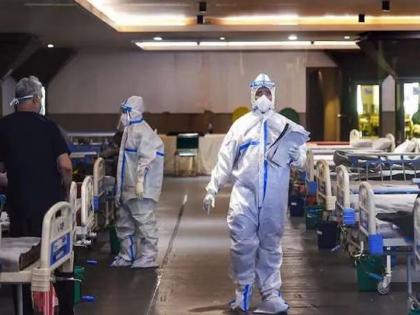Marburg Virus Outbreak: Bleeding Eye Disease Claims 15 Lives in Rwanda; All you need to know about symptoms and Precautions
By Lokmat English Desk | Updated: December 3, 2024 13:04 IST2024-12-03T13:02:53+5:302024-12-03T13:04:00+5:30
Bleeding eyes should never be ignored, as it could indicate a serious condition. Meanwhile, the deadly Marburg virus has ...

Marburg Virus Outbreak: Bleeding Eye Disease Claims 15 Lives in Rwanda; All you need to know about symptoms and Precautions
Bleeding eyes should never be ignored, as it could indicate a serious condition. Meanwhile, the deadly Marburg virus has caused devastation in Rwanda, an African nation. The outbreak has already infected hundreds of people, with 15 confirmed fatalities reported so far.
An alert has been issued in 17 countries amidst concerns over the Marburg virus, often referred to as the "bleeding eye virus" due to its symptom of causing blood to flow from the eyes. According to medical experts, the virus is highly lethal and linked to viral hemorrhagic fever.
The World Health Organization (WHO) states that the Marburg virus is related to the Ebola virus and causes severe damage to blood vessels, leading to internal bleeding. It is a zoonotic virus, originating from bats, and spreads to humans through contact with bat blood, urine, or saliva. First identified in Frankfurt, Germany, in 1961, the virus remains a critical global health concern.
Symptoms of Marburg Virus Infection
According to the World Health Organization (WHO), Marburg virus infection presents with a range of symptoms, including:
- High fever
- Severe headaches
- Muscle aches
- Vomiting
- Sore throat
- Rashes
- Diarrhea
The virus also causes severe complications like internal bleeding, organ failure, sudden weight loss, and bleeding from the nose, eyes, mouth, or vagina. Mental confusion is another serious symptom observed in infected individuals.
Precautions to Prevent Infection
The Marburg virus spreads through direct contact with the body fluids of infected individuals. To reduce the risk of infection, doctors recommend:
- Avoiding contact with infected people
- Maintaining social distancing
- Wearing masks
- Washing hands frequently with soap and water